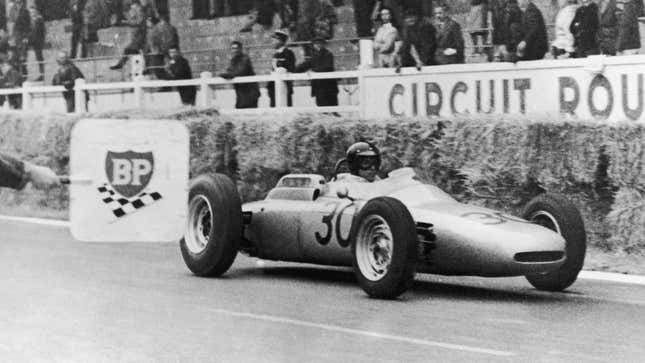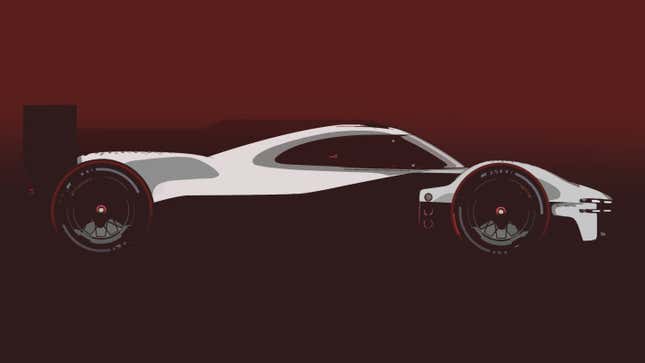
Automakers are forever teasing fans with suggestions of joining this or that racing series, but Volkswagen Group’s curiosity in Formula 1 is reported to go beyond mere interest. Porsche and/or Audi is making preparations to enter Formula 1 in 2025, per a story Thursday from Car, a British magazine.
There’s been no confirmation behind the scenes from either brand, though events leading up to this point suggested that at least Porsche was very keen on entering F1. Last month, the BBC reported that Porsche was involved in discussions, alongside current F1 constructors and the FIA, to shape the regulations governing F1's future power units beginning in 2025. That’s probably not a conversation you’d willingly submit yourself to unless you were serious.
And Porsche has been serious. In 2017, the company developed an F1 engine in secret, targeting 2021 regulations. However, that project was shelved alongside its World Endurance Championship program.
Porsche’s primary demand to the FIA throughout this process has been to keep costs low and promote sustainability. Fortunately for Stuttgart, a budget cap will take effect for the first time this season, with spending limits decreasing to $135 million from 2023 onwards. Additionally, synthetic fuel is pretty much guaranteed to factor into the 2025 engine formula.
Tom Clarkson — Car’s F1 correspondent and a voice familiar to anyone who’s listened to F1's official Beyond The Grid podcast — elaborates:
‘[Porsche] is part of the FIA’s engine working group, so they are involved in all of the conversations about the 2025 regs. Word on the street is that they’re real contributors too - they turn up to meetings full of ideas.’
It’s likely that the amount of electric power will be doubled for 25, which Porsche are keen on. So, yes, I think there’s every chance they’ll join,’ he added.
So then, there’s much excitement around Porsche. But what about Audi? If Ingolstadt is as tempted to join F1 as its intra-corporate rivals, it’s been far less showy about it. An Audi spokesman told Car that “at this point in time, a budget extension of about 200m Euro per season won’t wash with the board of directors or our works council.” Yet Audi remains a part of this conversation.
Let’s not forget that both Porsche and Audi are returning to endurance racing — in either or both the WEC and the IMSA Sports Car Championship — with Le Mans Daytona h entries, usually referred to as the LMDh class. Porsche has said it’s targeting 2023 for its forthcoming prototype, while Audi has been less clear on its timeline.

As racing fans, we’ve become far too accustomed to expecting the sport to shrink. Manufacturers burst out of the gate with big programs and tons of investment, only to be shocked when they don’t immediately win everything in their first year. So they walk away. Nobody ever has enough cash; fuel-burning motorsport is usually deemed incongruous with brands’ visions of sustainability; and the end result is general negativity about the future.
A golden era of racing, the likes of which we haven’t seen in two decades at least, ends up feeling like a pipe dream.
That’s why VW’s interest in F1 is so surprising. If all goes the way it seems like it will, in a couple of years we’ll be watching Porsche and Audi duking it out with Ferrari, Peugeot, Toyota and Acura at Le Mans, and probably at least Porsche joining the F1 constructor’s championship. There is a possibility that one of the VW brands limits its F1 involvement to the role of engine supplier, perhaps in partnership with McLaren, Red Bull or Williams. Still, their presence would be welcome. The future is looking very bright indeed.